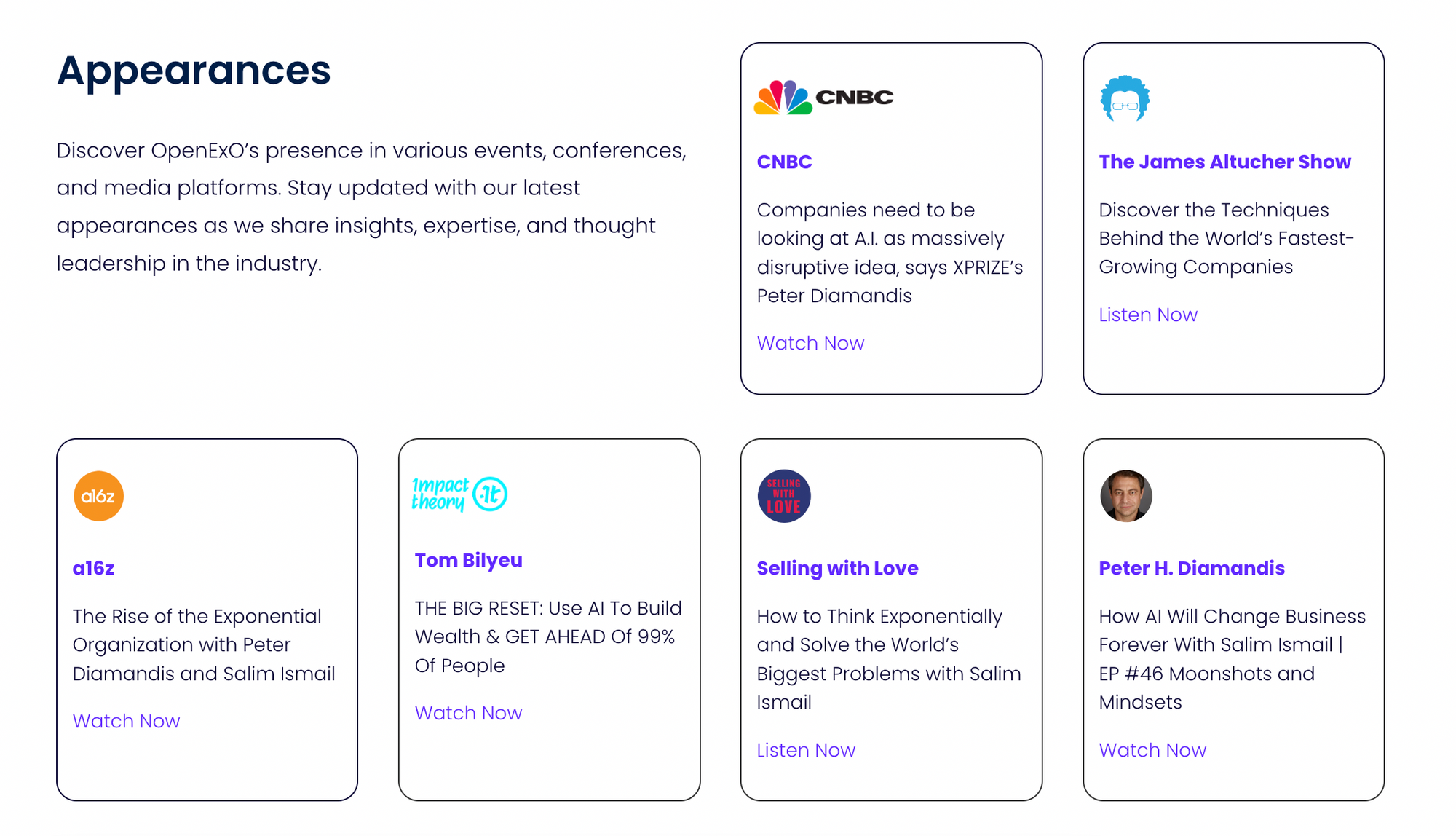
Mentally, We Don’t Always Do Change Well
Discover how businesses can proactively manage mental health during transformative periods and create a culture that values optimal well-being.
Change is good. We like change, especially in this community!
But transformational change programs in an organization generally lead to significant shifts in the structure, strategy, culture, and operation of the business.
These shifts can have substantial and significant negative impacts on our people's physical and mental well-being, which is not good.
I couldn’t help myself. I had to go see what ChatGPT would have to say about all this:
“Leaders of exponential organizations may face mental health challenges such as stress, burnout, anxiety, and imposter syndrome. The exponential growth and pace of change can put a lot of pressure on leaders to keep up, innovate, and constantly push boundaries. They may also feel responsible and pressured to deliver on their organization’s goals and visions. This can lead to overworking, neglecting personal well-being, and feeling like they are falling short of expectations. For example, Elon Musk, the CEO of several exponential organizations, has publicly spoken about his struggles with anxiety, insomnia, and burnout due to the demands of running multiple companies and pursuing ambitious goals. It’s important for leaders to prioritize their mental health and seek support when needed to prevent burnout and maintain their well-being”.
But even ChatGPT will admit that it only offers insights up until September 2021, and the insights into mental health and well-being are a tad generic and dated, in my opinion.
So, here is a bit of a deeper dive into my experiences working with leaders and businesses across many sectors who are introducing transformation and significant change. I am not talking about those who are introducing the type of change in systems, processes, or structure that cannot be seen from the outside, like a home renovation where we only update the bathroom. I am talking about massive upheaval, where we see huge shifts everywhere we look.
I am reminded of when I worked in my private psychotherapy practice and in rehab treatment facilities. I was never keen on working with the ‘worried well’ who just wanted to change their outlook or mindset on a specific problem. This wasn’t life-changing enough to interest me. I worked with people who were starting all over again. People whose addiction had seen them lose everything. Or veterans who were homeless because their families couldn’t cope with their impulsiveness and terrors.
What they had in common was a fear of the unknown and how they would cope when nothing seemed as it was. Would they fit in? Did they have the skills to deal with all that is new to them?
At the risk of downplaying anybody’s experience, does this sounds in any way familiar? Because the fears and biases we hold are coming from the same autonomic responses.
Significant Changes and Possible Effects
Typically, in transformation and significant change, such as experienced in the work we do, we can expect such effects as:
Stress: Transformation tends to lead to increased stress levels among team members, especially if they see the change as threatening and if they are not completely across or aware of the coming changes. The effects of chronic stress are well-known - hypertension, heart disease, gastrointestinal problems, and a weakened immune system. At the extreme end, one can even see cancer, motor neurone diseases, and cardiovascular mortality.
Mental health: The transformation process itself may not be the catalyst but can exacerbate existing issues. The stress and uncertainty associated with change or transformation can trigger or worsen mental health issues like anxiety, depression, and burnout. In the ExO world, they will likely experience the full gamut of burnout consequences, including emotional exhaustion, chronic stress and psychosocial trauma, and feelings of apathy towards their work.
Sleep disturbances: Increased stress and worry can lead to disruptions in sleep patterns. We now know that poor sleep can affect an individual's overall health, cognitive performance, and emotional well-being. This is potentially the most overlooked and most significant disruptor of good health.
Work-life balance: Changes that require more work hours, travel, or a re-location can disrupt our peoples’ work-life balance, leading to health and mental issues due to a lack of downtime or personal/family time. Work and ‘life’ should not be in competition. They are not an either-or but need to live in harmony.
The story can be even more significant for our leaders. We know that leaders of exponential organizations - designed to scale rapidly and significantly - face unique mental health challenges due to the speed, scale, and innovative nature of their work.
These challenges, not unique to the ExO sector but certainly more prominent, can include more dramatic burnout levels due to the fast-paced and high-pressure environment of exponential growth.
Isolation: Leaders can feel isolated due to the intensity and responsibility of their roles. These feelings of being "alone at the top" can lead to increased stress and can contribute to mental health issues like depression and anxiety. Even more so when emotional intelligence and empathy are less utilized by those working ‘in the business’ as opposed to those working ‘in the business’.
Imposter syndrome: Rapid growth and success can lead some leaders to feel like imposters, doubting their achievements and fearing that they will be exposed as fraud. This can cause significant anxiety and lower self-esteem.
Decision fatigue: Leaders of exponential organizations often must make numerous complex and high-stakes decisions, leading to decision fatigue. This can impact mental health and overall cognitive function, leading to poorer decision-making over time.
Perfectionism: The drive for continuous improvement and innovation can lead to perfectionism, which can contribute to stress, burnout, and other mental health issues. Note that perfectionism is in the anxiety family of mental health issues, often leading to another related issue, procrastination, as an unhelpful coping strategy.
Fear of failure: Rapid scaling and high-stakes decision-making can amplify the fear of failure. This fear can create significant anxiety and inhibit innovation and risk-taking.
Promoting Employee Well-being
However, these impacts can be mitigated through strategic planning and empathetic leadership. Here are a few ways to promote employee well-being during an exponential transformation:
Clear communication: Clearly communicating the reasons for the transformation, how it will unfold, and how it will affect employees can alleviate stress and uncertainty.
Engagement and participation: Involving everyone in the transformation process can increase their sense of control and commitment to the change.
Support resources: As far as they support one’s self-care, they will not remove or excuse the mental health effects of rapid transformation. Like the canary down the coalmine, if it is collapsing down to exposure, getting a stronger canary will not remove the danger.
Work-life balance: Encourage healthy work-life balance by implementing flexible work hours, telecommuting options, and boundaries around work communication during non-work hours. As we said earlier, these are not in competition but need to live in harmony with each other. And communicating boundaries will be necessary for everyone.
Leadership support: Supportive leadership can play a crucial role in alleviating the impact of rapid transformation on employee well-being. Leaders can model healthy coping strategies, seek and normalize external supports in coaching and mentoring, provide reassurance and clarity around the process, and demonstrate genuine empathy towards their teams during times of challenge.
Training and development: Providing training to adapt to new tools, technologies, or work processes can reduce stress and increase confidence among employees.
It is also worth noting that, in my experience, businesses, generally speaking, cannot manage this internally. “Switzerland’ is needed - a refuge, a place of safety with external support in times of overwhelming mental health challenges. Working with a therapist or coach can mitigate the higher levels of overwhelm and address specific issues.
By proactively addressing these issues, companies can ensure that business transformations do not unduly harm employees' physical and mental health.
Leaders play an integral and vital part in creating a culture that values optimal mental health by promoting work-life harmony, encouraging open conversations about mental health, and creating space and support for good mental health care.
The International Organisation For Standardisation has developed a new set of standards (ISO:45003), currently standing merely as a guide but on the road to being accredited, which will set an international requirement that all organizations adhere to specific minimum standards of psychosocial hazards mitigation.
So, in short, not only is this good business practice to address and manage mental well-being, but it is also fast becoming a legal requirement globally. Best to get ahead of this process.
#ChangeIsGood #TransformationalChange #PositiveShifts #Community #PhysicalWellBeing #MentalWellBeing #LeadershipChallenges #StressManagement #BurnoutPrevention #AnxietyInLeadership #ImposterSyndrome #DecisionMaking #WorkLifeBalance #EmployeeEngagement #ClearCommunication #SupportiveLeadership #TrainingAndDevelopment #ExternalSupport #TherapyAndCoaching #PsychosocialHazards #MentalHealthCare #LegalRequirements #BusinessPractice #MentalWellness

ExO Insight Newsletter
Join the newsletter to receive the latest updates in your inbox.








